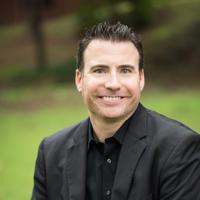Applying Exercise Science Principles to Voice Pedagogy: Skill Acquisition, Performance Assessment, and Literature Selection
Thursday 27th July 2023, 5:00 PM - 7:00 PM (London Time)
Although there is a large body of literature that applies exercise principles to athletic goals (running marathons, strength training, etc.), there is comparatively little research that applies these same principles to singing endeavours.
This article applies exercise science principles to specific vocal warm-up regimes (skill-acquisition exercises) and literature selection for classical singers.
After an introductory discussion of skill acquisition from an exercise physiology perspective, discussion will segue to a review of skill-acquisition warm-ups that are commonly used in classical voice training and habilitation.
An examination of historical and contemporary methodologies reveals that traditional warm-ups for singers can be categorised according to targeted areas of skill acquisition, such as those that address onset/release, breath management, agility/flexibility, registration blending, tone/resonance development, or range expansion.
Based on this information, the presenter’s research suggests the development of a rubric to assess the skill levels of individual singers in each of these areas.
Teachers of singing can then consider these data when assigning repertoire from the standard body of vocal literature so that the specific areas of skill acquisition focused on in the warm-up are applied and reinforced through appropriate repertoire selection.
Matthew Hoch
Matthew Hoch joined the faculty of Auburn University in 2012, where he was tenured in 2015 and promoted to the rank of professor in 2020. His research program...

Attend this course for as little as £22 as part of the Voice Professional Training CPD Award Scheme.
Learn MoreSorry, this is an archived short course...
We have plenty of upcoming short courses coming soon. See details of some of them below or look at the full list of short courses.

Wednesday 4th March 2026
1:00 PM - 2:00 PM
Wednesday 11th March 2026
1:00 PM - 2:00 PM
Wednesday 18th March 2026
1:00 PM - 2:00 PM
Wednesday 25th March 2026
1:00 PM - 2:00 PM
Wednesday 1st April 2026
1:00 PM - 2:00 PM
Wednesday 8th April 2026
1:00 PM - 2:00 PM
(London Time)
Learn to Coach RP and SSBE – a Certificate in Accent Coaching

Louisa Morgan
This six-week course is an opportunity to learn about both Received Pronunciation and Standard Southern British English. Rather than a course in learning how to speak RP/SSBE (there are many brilliant available courses for this already), this course is about learning how to coach it.

Thursday 5th March 2026
1:00 PM - 2:30 PM
Thursday 12th March 2026
1:00 PM - 2:30 PM
(London Time)
Acting Emotion: Perspectives from the Masters

Louisa Morgan
Stanislavski said, “our artistic emotions are, at first, as shy as wild animals and they hide in the depths of our souls.” Michael Chekhov said, our bodies should be like a “sensitive membrane, a kind of receiver and conveyor of the subtlest images, feelings, emotions and will impulses.” And Meisner said we should be “living truthfully under imaginary circumstances.” Join Louisa Morgan in this 2-part course as she explores a range of well-known acting practitioners to investigate what they believed (or believe) about emotion and how they approached it in their work. She'll compare their work to see where they align and where they diverge.


Tuesday 10th March 2026
3:00 PM - 5:00 PM
(London Time)
Living truthfully in the present moment: An introduction to the Meisner Technique!

Abigail Sugden
Sanford Meisner believed that acting is living truthfully under imaginary circumstances. Rooted in behavioural aspects of acting practice, the Meisner Technique is often associated with encouraging actors to live truthfully in the present moment. Aimed at those working within the field of acting, this 2-hour session with Abigail Sugden will focus on the work of Sanford Meisner, introducing the core principles of his technique and discussing the possible benefits to performers.
